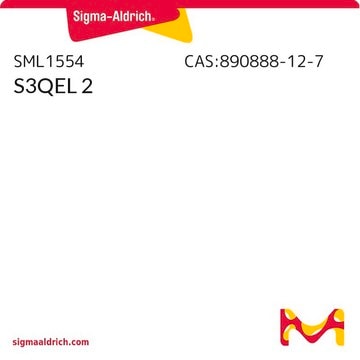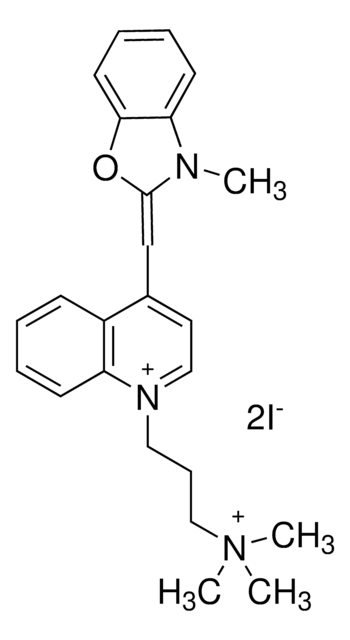SML1948
S1QEL1.1
≥98% (HPLC)
Synonyme(s) :
N1-(3-acetamidophenyl)-N2-(2-(4-methyl-2-(p-tolyl)thiazol-5-yl)ethyl)oxalamide, S1QEL
About This Item
Produits recommandés
Niveau de qualité
Pureté
≥98% (HPLC)
Forme
powder
Couleur
white to beige
Solubilité
DMSO: 2 mg/mL, clear
Conditions d'expédition
wet ice
Température de stockage
−20°C
Chaîne SMILES
CC1=C(CCNC(C(NC2=CC=CC(NC(C)=O)=C2)=O)=O)SC(C3=CC=C(C)C=C3)=N1
Application
- to investigate the role of mitochondrial-derived superoxide in triggering ferroptosis
- to study the mechanism involved in the regulation of anti-fungal responses of macrophages against Aspergillus infection
- in combination with mito-antioxidant to study their influence on mitochondria-derived H2O2 in cancer cells
- to determine the effect of oxidative stress depletion on myoblast differentiation
Actions biochimiques/physiologiques
Code de la classe de stockage
11 - Combustible Solids
Classe de danger pour l'eau (WGK)
WGK 3
Point d'éclair (°F)
Not applicable
Point d'éclair (°C)
Not applicable
Certificats d'analyse (COA)
Recherchez un Certificats d'analyse (COA) en saisissant le numéro de lot du produit. Les numéros de lot figurent sur l'étiquette du produit après les mots "Lot" ou "Batch".
Déjà en possession de ce produit ?
Retrouvez la documentation relative aux produits que vous avez récemment achetés dans la Bibliothèque de documents.
Notre équipe de scientifiques dispose d'une expérience dans tous les secteurs de la recherche, notamment en sciences de la vie, science des matériaux, synthèse chimique, chromatographie, analyse et dans de nombreux autres domaines..
Contacter notre Service technique








